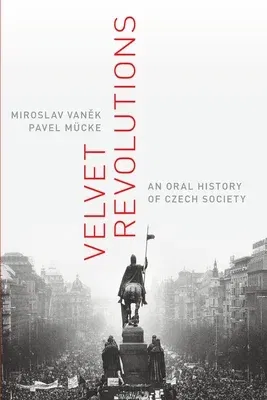Miroslav Vanek
(Author)Velvet Revolutions: An Oral History of Czech SocietyPaperback, 1 October 2020

Qty
1
Turbo
Ships in 2 - 3 days
In Stock
Free Delivery
Cash on Delivery
15 Days
Free Returns
Secure Checkout

Part of Series
Oxford Oral History
Print Length
266 pages
Language
English
Publisher
Oxford University Press, USA
Date Published
1 Oct 2020
ISBN-10
0197546277
ISBN-13
9780197546277
Description
Product Details
Authors:
Book Format:
Paperback
Country of Origin:
US
Date Published:
1 October 2020
Dimensions:
23.11 x
15.49 x
1.78 cm
ISBN-10:
0197546277
ISBN-13:
9780197546277
Language:
English
Pages:
266
Publisher:
Series:
Weight:
521.63 gm